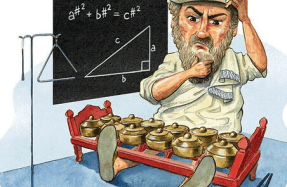England’s forgotten great

An English master-composer ahead of his time? That might seem an unexpected assessment of a creative musician of phenomenal gifts, whose concert-hall works were consistently dismissed during his lifetime, in most critical circles at least, as conventional and old-fashioned. Perhaps even more suspect intellectually was Arnold’s ultra-fluent, lucrative and successful output as a film composer – over 100 scores over a 20-year period, including major achievements such as The Bridge on the River Kwai (which won its composer an Academy Award). The same phenomenal work-rate, meanwhile, had Arnold producing a total of nearly 150 works with opus numbers, including nine symphonies.

Today’s is a happily less prescriptive age regarding whether this or that classical musical style is considered acceptable. Even so, and despite a very substantial recorded legacy, it’s striking how little of Arnold’s work has featured in the nation’s concert-going life for the previous half-century. Distressing extra-musical circumstances were a factor: in the late 1970s a build-up of longstanding psychological problems, made worse by decades of overwork and heavy drinking, led to a mental and physical breakdown from which the composer took several years even partly to recover. But there surely has been time enough since then for Arnold’s output to re-emerge from that particular shadow.
Perhaps the slow process of acceptance is best explained by the maverick creative temperament that lies just behind Arnold’s outwardly tonal and traditional style – a style that brings together extremes of musical resource and mood, ranging from winsome tunefulness to flaring emotionalism, often with disconcerting mood-swings to match. Two other composers whose idiom operates in a similar way, and who were both admired
You’re reading a preview, subscribe to read more.
Start your free 30 days



